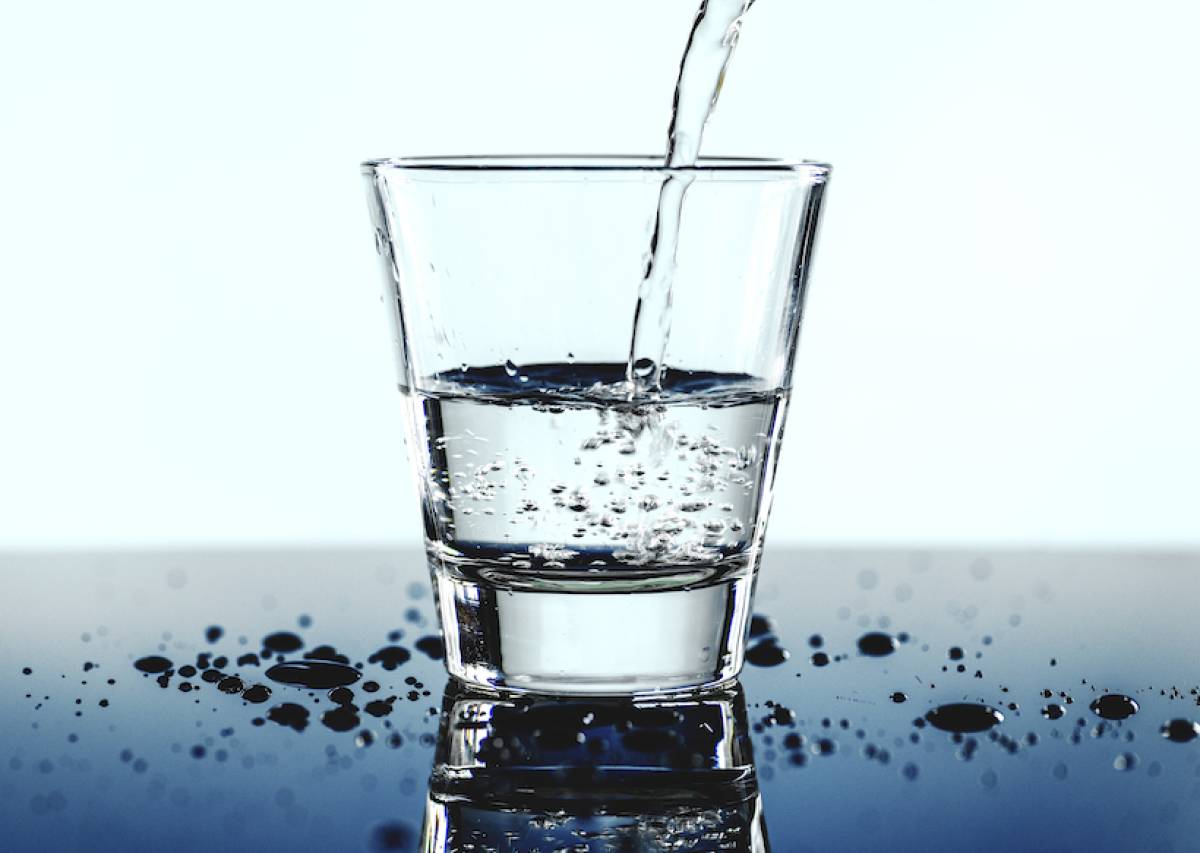Why You Should Avoid Drinking Ice-Cold Water

Staying hydrated is, of course, important. That much is a given.
But, drinking cold water isn’t necessarily the best way to go about it. The colder the water, the more risky and unpleasant it can feel when drinking it.
Here are reasons why you should avoid taking a swig of ice-cold water, especially on warmer days.
1. Cold water affects digestion
While you might think water is just water, its temperature can make a difference when it comes to digestion. If you know anything about blood vessels, you may be familiar with how temperature affects the blood vessels. Lower temps cause the vessels to contract, while higher temps cause them to relax and expand.
Because the stomach has a lot of blood vessels, drinking ice cold water at once can have an impact on digestion. All of those blood vessels that allow the stomach to function optimally may contract when you drink cold water, and digestion may become less effective. That can lead to stomach problems.
Instead of focusing on absorbing nutrients and having smooth digestion, your body may instead focus on temperature regulation to get those blood vessels in the stomach back to good working temp after drinking very cold water. Drinking cold water can thus bring a less-than-favourable result.
2. Cold water slows heart rate
If you’ve ever felt sluggish and tired after drinking cold water, it might be because it slowed your heart rate. Studiesshow that chilled water can have a significant impact on heart rate, though the exact mechanism is still being studied.
The main reason for this could be that the cold water stimulates the vagus nerve, which is tied to various autonomous bodily functions, including heart rate. Because low temperatures inhibit blood vessels and nerves, it should come as no surprise that cold water can chill the vagus nerve enough to have an impact on heart rate.
Now, if you’re working out or trying to stay alert, you probably don’t want your heart rate to go down. You want to maintain healthy heart rate and better heart health in the long run. To keep your energy and stay stimulated, avoid taking swigs of ice-cold water as it will certainly slow you down.
3. Cold water shocks the body in some situations
Wanting to maintain a healthy heart rate and stay upbeat isn’t the only reason to avoid cold water. Cold water can shock the body and cause muscle stiffness, pain, or a tingling sensation that makes it difficult to move if you drink it at the wrong moment, such as during workouts and long training sessions.
As tempting as it may be to chug cold water after a particularly intense workout, it's definitely something you want to avoid. When you’re getting hot and sweaty, the sharp contrast of ice-cold water can create a temperature mismatch that will not feel pleasant.
The blood vessels of your stomach shouldn’t be made to contract abruptly after they’ve been dilated from high-intensity activities. If this happens, you might experience some digestive issues, severed discomfort, and unpleasantness.
Keep in mind that our bodies make water absorption difficult during strenuous physical activities, as blood tends to move to muscles and joints instead of digestive tissues in these situations. Chugging a lot of cold water forcefully will only lead to discomfort.
4. Cold water can affect your teeth
If you’re a big fan of ice-cold drinks, you’ve probably experienced this—you took a swig of cold water or juice on a hot day, and you suddenly developed a toothache. As unpleasant as this feeling is, it doesn’t stop some people from drinking chilled water—but it should!
Creating drastic temperature changes is bad for any part of your body, whether it’s your stomach or your teeth. While tooth enamel is incredibly durable, that doesn’t mean that you should test its limits unnecessarily with drastic temperature shifts. Not only does this cause discomfort, but it could also cause some slight damage to your teeth.
If you have recently gotten teeth fillings or your teeth are naturally sensitive to temperature changes, you should definitely avoid taking swigs of ice-cold water. This goes double if the water contains ice.
People put ice in many drinks, but it’s a habit that can cause damage to our enamel and gums if we aren’t careful. If you accidentally bite into ice, you might be in for quite a bit of pain and a chipped tooth as well.
5. Cold water can cause a sore throat
You've probably heard the warning to avoid drinking chilled water too fast because it can cause a cold or sore throat. While this health outcome is somewhat exaggerated, there is some merit to the claim.
We've already established that cold water causes blood vessels to contract, and that we have plenty of blood vessels in our body, including our noses and throats. When those blood vessels contract, it signals to the body that it’s cold and that it’s time to protect the sensitive tissue lining these areas. This is achieved by producing thick and viscous mucus secretions. The colder it is, the more mucus you can expect.
Considering that thick and viscous mucus secretions are also produced when cold air hits the nose and throat tissues as well, it’s easy to see why drinking cold water is said to cause colds and sore throats. It’s worth noting, however, that a sore throat and cold-like symptoms aren’t the only issues that can arise.
With blood vessels contracting and mucus lining the walls, the nose and throat become more susceptible to infection. While it isn’t a guaranteed way to get sick, there is a slight increase in risk. If possible, it’s best to avoid drinking too much cold water, especially if you’re prone to throat and nose infections.
Conclusion
While cold water may seem like an innocuous drink, it actually has the potential for negative effects in some situations. Whether you’re drinking ice-cold water on a hot or freezing day, it may lead to some discomfort one way or another, or it could even cause damage to your teeth.
Instead of opting for the chiller variant, drink lukewarm or slightly chilled water. This is a much better alternative that has no drawbacks.




















![[node:title]](/sites/default/files/styles/video_thumbnail_bottom/public/oceanfront_property.jpg?itok=IX8ceVc1)

